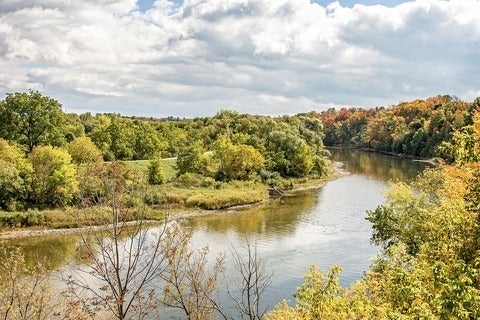Lake Futures Researchers attend the Global Water Futures 2018 Annual Science Meeting
This week, researchers from Lake Futures met with researchers across all Global Water Futures (GWF) projects at the GWF 2018 Annual Science Meeting, held at McMaster University, in partnership with the Six Nations of the Grand River. The conference spanned over four days (June 3-6, 2018), with plenty of time for plenary talks, poster-viewing, and collaborating with fellow scientists.
